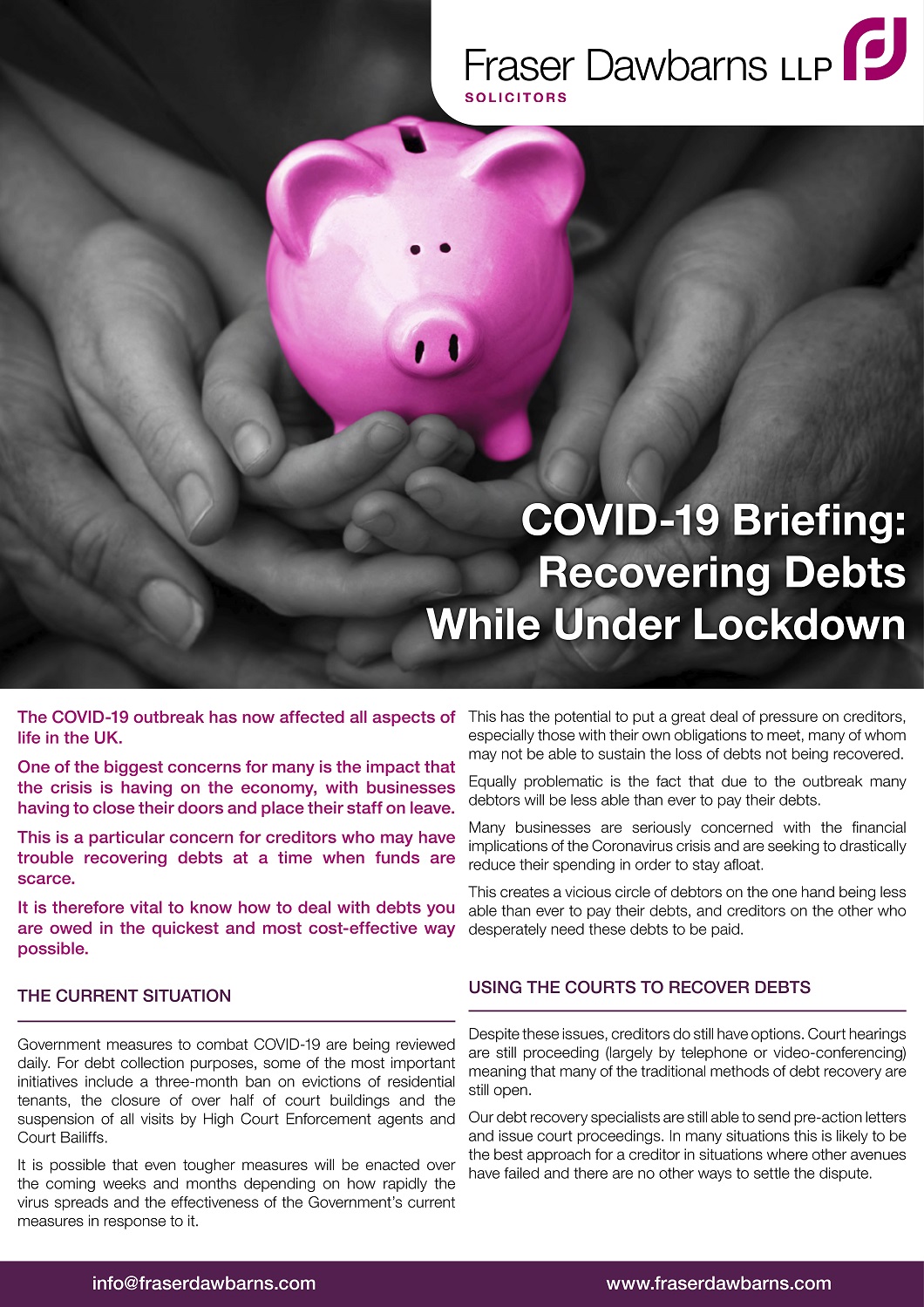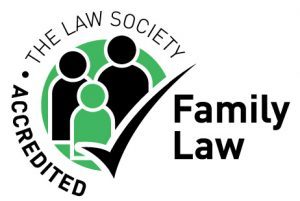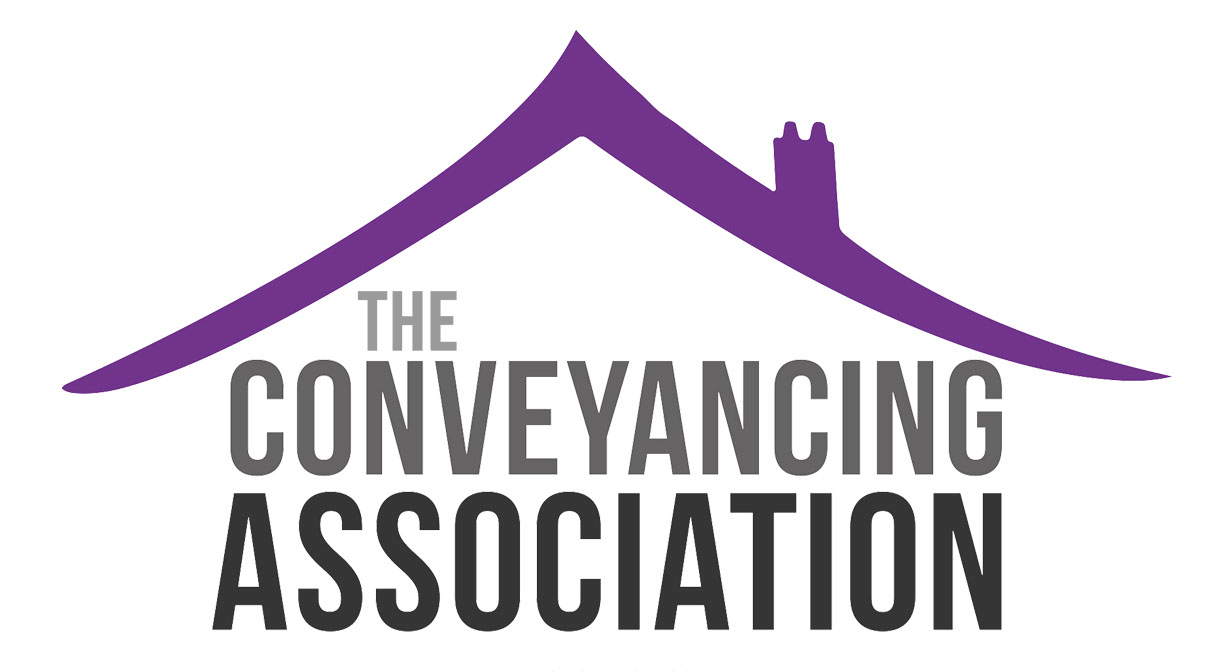COVID-19 Briefing: Recovering Debts While Under Lockdown
The COVID-19 outbreak has now affected all aspects of life in the UK. One of the biggest concerns for many is the impact that the crisis is having on the economy, with businesses having to close their doors and place their staff on leave.
This is a particular concern for creditors who may have trouble recovering debts at a time when funds are scarce. It is therefore vital to know how to deal with debts you are owed in the quickest and most cost-effective way possible.
The Current Situation
Government measures to combat COVID-19 are being reviewed daily. For debt collection purposes, some of the most important initiatives include a three-month ban on evictions of residential tenants, the closure of over half of court buildings and the suspension of all visits by High Court Enforcement agents and Court Bailiffs.
It is possible that even tougher measures will be enacted over the coming weeks and months depending on how rapidly the virus spreads and the effectiveness of the Government’s current measures in response to it. This has the potential to put a great deal of pressure on creditors, especially those with their own obligations to meet, many of whom may not be able to sustain the loss of debts not being recovered.
Equally problematic is the fact that due to the outbreak many debtors will be less able than ever to pay their debts. Many businesses are seriously concerned with the financial implications of the Coronavirus crisis and are seeking to drastically reduce their spending in order to stay afloat. This creates a vicious circle of debtors on the one hand being less able than ever to pay their debts, and creditors on the other who desperately need these debts to be paid.
Using The Courts To Recover Debts
Despite these issues, creditors do still have options. Court hearings are still proceeding (largely by telephone or video-conferencing) meaning that many of the traditional methods of debt recovery are still open. Our debt recovery specialists are still able to send pre-action letters and issue court proceedings. In many situations this is likely to be the best approach for a creditor in situations where other avenues have failed and there are no other ways to settle the dispute.
Are There Any Alternatives to Using the Courts?
Given the suspension of enforcement visits and evictions together with the pressure that the courts are currently facing, a resolution is unlikely to be immediate. We also offer an Alternative Dispute Resolution (ADR) service and a sympathetic approach.
Through this service we aim to keep the matter out of court, wherever possible, saving you time and money whilst still working towards achieving the best result for our clients. We are able to make informal approaches on your behalf, as well as deal with more formal aspects of ADR like arbitration and arranging for expert opinions.
Which Method Is Right For Me?
What is best for you depends entirely on the circumstances, which is why it is always best to contact us as early as possible, even if you do not need us to do anything immediately. By making us aware of the circumstances, we can help to deal with problems before or as they arise.
What Should I Do Now?
We understand how hard the current climate is for creditors and debtors alike, which means we have a great insight into the best way of settling debt disputes based on our lawyers’ wealth of experience. Every situation is so different, and the COVID-19 outbreak is so unprecedented, that the best way to get the right advice is to contact us directly. We will be happy to help.
Contact us for More Information
For any advice in relation to debt recovery or any other legal matter during the COVID-19 crisis, please do not hesitate to contact the team at Fraser Dawbarns LLP.
Peace of Mind through difficult times
In uncertain times, the only thing we can say for certain is that nothing will stay the same for long.
It is entirely possible, therefore, that new legislation will have been introduced which will mean that all or part of this briefing no longer reflects the current law.
Because of this, we ask you to consider that, although correct at time of printing, information in this sheet may no longer be up to date and it is always best practice to consult with a lawyer about anything contained in this briefing.
Our lawyers are available to help answer any of your questions about this or any other legal concern you have.
Please contact Fraser Dawbarns directly for up-to-date information on your specific circumstances.
This Guide was prepared on 31st March 2020
New laws are being introduced and current legislation is regularly being updated. Although every effort has been made to ensure that information contained in this sheet is accurate, it may no longer be current at the time of reading. We strongly recommend consulting with a lawyer about your specific circumstances.
Read our Other COVID-19 Briefings
Our COVID-19 Guides contain useful information on how the coronavirus pandemic and the lockdown have affected legal services and everyday life across the UK.
- Extension to Stay on Residential Posessions
- Could an LPA Have Helped Me During the Lockdown?
- Dispute Resolution During the Pandemic
- Force Majeure and Frustration
- Coronavirus and Business Interruption Insurance
- Winding Down the Furlough Scheme
- Child Maintenance on a Reduced Income
- Reopening the Housing Market
- Life After Furlough
- The Changing Face of Litigation
- Holding Company Meetings During Lockdown
- Making or Amending a Will Under Lockdown
- Commercial Lasting Powers of Attorney
- The Three Month Ban on Evicting Tenants
- Child Contact and the Coronavirus Lockdown
- Commercial Tenancies and Rights of Forfeiture
- Guidance for Employers and Employees
Related Articles
Recommended By The Legal 500 Directory*
*We are recommended for the following practice areas: Corporate and Commercial, Debt Recovery, Employment, Personal Injury: Claimant, Agriculture and Estates, Contentious Trusts and Probate, Family, Personal Tax, Trusts and Probate & Commercial Property.
ServicesContact

















